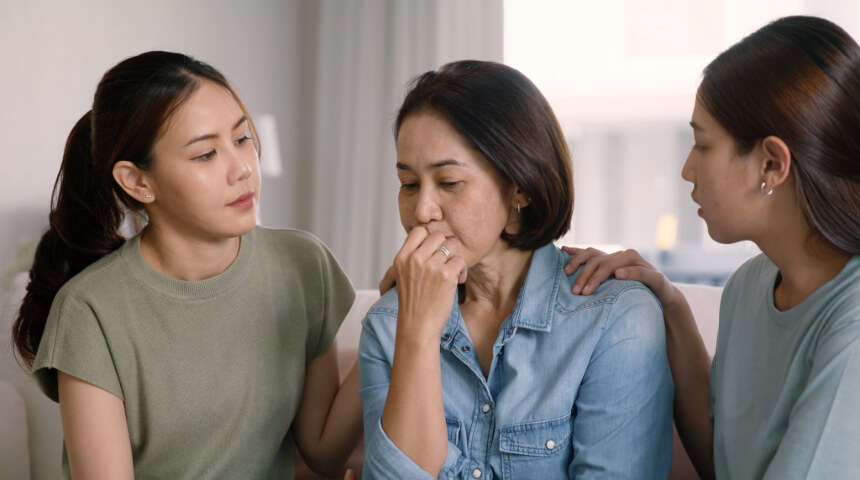It’s embarrassing – but not uncommon. Accidental bowel leakage — the involuntary loss of gas, liquid or solid stool — affects many people. But you might be reluctant to discuss the problem, even with your healthcare provider, because of the shame and stigma surrounding the condition. But your doctor is exactly the person you should be talking to — you might be surprised at the ways they can help improve your quality of life.
Causes of Accidental Bowel Leakage
One of the biggest risk factors for accidental bowel leakage (ABL) is aging. For women, childbearing is an additional risk factor — pregnancy and delivery can stretch and strain the muscles in the pelvic floor. The good news is, ABL doesn’t necessarily represent a serious underlying problem; it also can be transient or persistent.
A change in stool consistency, whether too firm — like small pebbles — or too loose (pasty, mushy or smeary) can create bowel dysfunction and cause stool loss, so regulating stool consistency is a first step. Fiber can be key, both in the form of a healthy overall diet and via fiber supplements, which help regulate stool habits.
Every muscle in our bodies tends to weaken with age, and the anal sphincter is no different. But just as you can exercise and strengthen other muscles in the body, the same can happen with the sphincter. A pelvic floor rehab specialist is a therapist who helps improve the function of the pelvic floor through muscle-strengthening exercises, along with behavioral and dietary modifications. They also can help review toileting techniques to optimize fully evacuating your bowels, so there's no residual left behind to seep out.
A Higher-Tech Solution
One exciting development in treating ABL is sacral neuromodulation, an FDA-approved device that has long been used to treat bladder disorders.
Similar to a pacemaker, it uses a thin wire placed near the sacral nerve to stimulate the bowel, sphincter and bladder muscles to work normally. It’s not painful — patients often perceive it as a tapping sensation on the perineum. Over time they usually are not aware of it at all. Results are striking: As many as 80 percent of patients find it makes a difference in bowel leakage and urgency, cutting down on the need to suddenly run to the bathroom.
Other Causes
One reason to speak with your doctor about accidental bowel leakage is to rule out anything more serious, like hemorrhoids, fissures and lesions. Your doctor will want to make sure you are up to date on your colon cancer screenings and will assess for any ominous signs or symptoms. If you are experiencing rectal bleeding or pain, they will likely seek additional evaluation with GI or colorectal specialists to rule out any underlying pathology.
More often, though, the causes of ABL are not life-threatening and can be improved with very minor changes. As with any medical issue, if it's bothering you, talk to your doctor.










